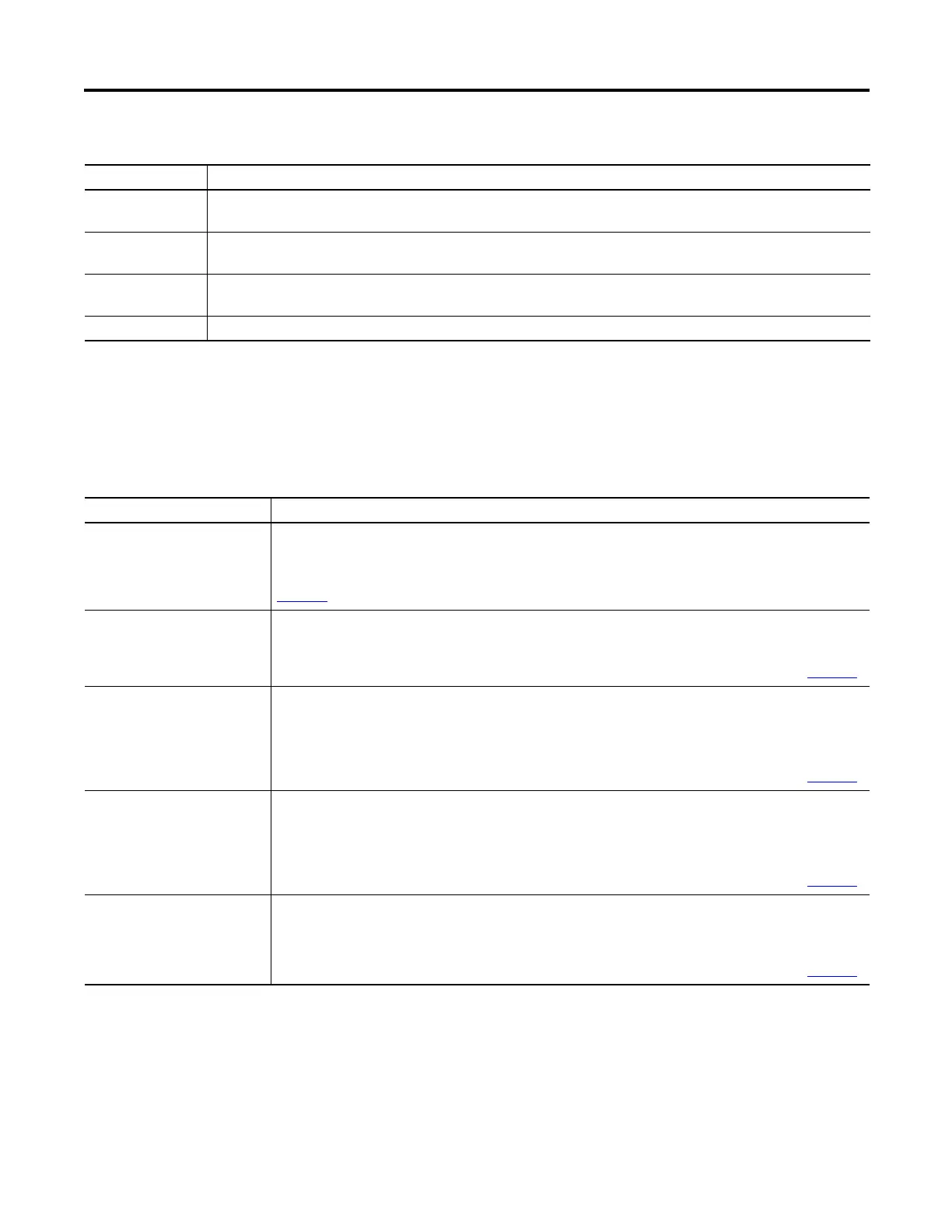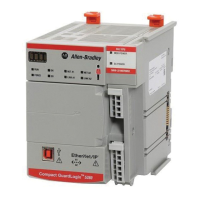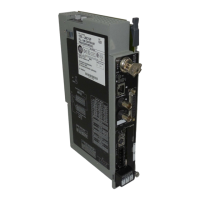Rockwell Automation Publication 1756-UM001M-EN-P - February 2012 201
Status Indicators Appendix A
Fault Messages
If the controller is faulted, these messages may be indicated on the status display.
Major Recoverable Fault Messages
Major recoverable faults are indicated by Major Fault TXX:CXX message on the
controller status display. This table lists specific fault types, codes, and the
associated messages as they are shown on the status display.
ESM Charging The capacitor-based ESM is charging.
Do not remove power until charging is complete.
Flash in Progress A firmware upgrade initiated via ControlFLASH or AutoFlash utilities is in progress.
Allow the firmware upgrade to complete without interruption.
Firmware Installation
Required
The controller is using boot firmware (that is revision 1.xxx) and requires a firmware upgrade.
Upgrade controller firmware.
SD Card Locked An SD card that is locked is installed.
Table 54 - General Status Messages
Message Interpretation
Table 55 - Fault Messages
Message Interpretation
Major Fault TXX:CXX message A major fault of Type XX and Code XX has been detected.
For example, if the status display indicates Major Fault T04:C42 Invalid JMP Target, then a JMP instruction is programmed to jump to an
invalid LBL instruction.
For details about major recoverable faults, see the Logix5000 Major, Minor, and I/O Fault Codes Programming Manual, publication
1756-PM014
.
I/O Fault Local:X #XXXX message An I/O fault has occurred on a module in the local chassis. The slot number and fault code are indicated along with a brief description.
For example, I/O Fault Local:3 #0107 Connection Not Found indicates that a connection to the local I/O module in slot three is not open.
Take corrective action specific to the type of fault indicated.
For details about each I/O fault code, see the Logix5000 Major, Minor, and I/O Fault Codes Programming Manual, publication
1756-PM014
.
I/O Fault ModuleName #XXXX message An I/O fault has occurred on a module in a remote chassis. The name of the faulted module, as configured in the I/O Configuration tree of
RSLogix 5000 software, is indicated with the fault code and brief description of the fault.
For example, I/O Fault My_Module #0107 Connection Not Found indicates that a connection to the module named ’My_Module’ is not
open.
Take corrective action specific to the type of fault indicated.
For details about each I/O fault code, see the Logix5000 Major, Minor, and I/O Fault Codes Programming Manual, publication
1756-PM014
.
I/O Fault ModuleParent:X #XXXX message An I/O fault has occurred on a module in a remote chassis. The module’s parent name is indicated because no module name is configured in
the I/O Configuration tree of RSLogix 5000 software. In addition, the fault code is indicated with a brief description of the fault.
For example, I/O Fault My_CNet:3 #0107 Connection Not Found indicates that a connection to a module in slot 3 of the chassis with the
communication module named ’My_CNet’ is not open.
Take corrective action specific to the type of fault indicated.
For details about each I/O fault code, see the Logix5000 Major, Minor, and I/O Fault Codes Programming Manual, publication
1756-PM014
.
X I/O Faults I/O faults are present and X = the number of I/O faults present.
In the event of multiple I/O faults, the controller indicates the first fault reported. As each I/O fault is resolved, the number of faults
indicated decreases and the next fault reported is indicated by the I/O Fault message.
Take corrective action specific to the type of fault indicated.
For details about each I/O fault code, see the Logix5000 Major, Minor, and I/O Fault Codes Programming Manual, publication
1756-PM014
.

